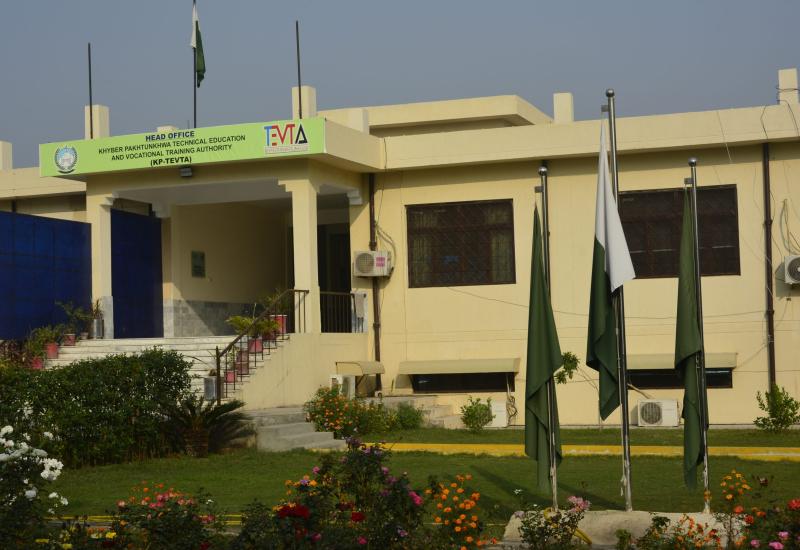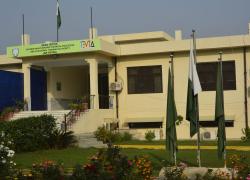Developing strong university-industry linkages in Pakistan
University-industry linkage is considered as a major collaborative effort on the part of academia and industry, sharing their knowledge, skills and resources to accomplish mutually compatible goals of research, innovation, and commercialization. A variety of mechanisms for this interaction are prevalent in the developed countries for quite a long period of time. Nevertheless, its practice is relatively novel in this part of the world. In fact, universities in Pakistan have not attained the desired level of excellence in the field of research and innovation. Whereas, the industrial sector in the country has its own set of problems in achieving the required competitive level. Hence, a strong partnership could not be evolved between academia and industry in Pakistan.
Introduction
The partnership between industry and academia has increased dramatically in the developed nations for the last couple of decades. This evolving alliance has been stimulated, primarily by social, economic, educational and technological forces. Some informal collaboration between the two entities has been in practice since long. For instance, students internship programs, joint capacity building and training activities, and apart from this some of the faculty members worked for industries in an individual capacity. However, its wider institutional application is relatively new in Pakistan.
This blog post takes a stock of the prevailing situation elaborating what the terms university-industry linkages connotes, the significance of the university-industry linkages, why university-industry linkages have not been established? and finally, how to develop an alliance between universities and industries in Pakistan?
What is University-Industry linkage?
University-industry linkages refer to the collaborative efforts between the two or more firms that pool their resources in a bid to attain mutually compatible goals that they could not materialize effortlessly all alone. This is predominantly an organizational arrangement intended to kickstart, streamline and maintain interaction between industry and university.
Significance of the university-industry linkages
Regarded as one of the wildly used interactive best practices university-industry linkages is a sturdy tool, for creating a congenial environment for technological innovations and enhancing global competitiveness, ultimately, promoting the interests of the firms and academia across the globe. This collaboration remained instrumental in fortifying universities’ ability to undertake high quality and relevant research in the cutting-edge areas and enhancing capabilities of the industry to compete globally.
The strength of universities lies in their science base; the power of the industry is technological advancement. Indeed, their very survival relies upon their ability and willingness to adapt to the tsunami of change. The industry will mainly be benefited, in terms of having ready access to trained professionals with the right knowledge, right skills and the right attitude, whereas, the university graduates will have exposure and experience of the practical workplace environment, that will act as a launching pad for their future professional career.
Why university-industry linkages couldn’t be established in Pakistan?
For the last 70 years, strong and smooth working relationship could not be established between universities and industry in Pakistan, for a variety of reasons. The most compelling among them is the lack of interest and realization of its potential, in both the academia and industry. Lack of government patronage, weak industrial base and poor public support are other areas of serious concern.
The universities in Pakistan have become more or less traditional teaching institutes mainly concerned with producing poorly skilled and inadequately trained graduates, which are of little or no use of industry. Industries need skilled professionals. Universities failed to meet the same need. In fact, the culture of research has not taken firm roots in our campuses for obvious reasons. There is an acute shortage of state-of-the-art labs and sophisticated equipment. The major failing of the university is that the institutions of higher education have not been able to develop effective coordination with industrial firms.
The Industrial firms in Pakistan do not possess the required confidence, well power and essential financial muscle for investment in R & D allied activities. The industry, here, has traditionally been engaged in ‘me-too-production’ (producing the same products which others produce over and over again), which amply demonstrates that the industril sector over here is trend follower and not the trendsetters. Moreover, the industrialists here are mostly risk aversive. There is no innovation taking place around here in our industries and are operating at a very low end of technology.
There is a serious communication gap between the two entities and very little effort has been spearheaded to bridge the gap. There is a lack of understanding of each other’s problems, each other’s potential and working relationship. There is a lack of trust, confidence and commitment on both sides of the aisle. Moreover, education imparted by our universities is in no way tailored to the needs of the practical working environment.
How to develop effective linkages between universities and industries?
In order to realize the full potential of such endeavours, academia will have to put its own house in order by meeting the needs of industries through applied research. Such kind of partnership can be manoeuvred through continuous efforts, trust and effective coordination. The framework of education, particularly in the professional disciplines (i.e. engineering, IT, management, chemical and pharmaceutical sciences need transformation along the lines of medical education. Since the medical graduates during their academic career spend half of their time in health care delivery units and half inside the classrooms, on the same analogy, students from other professional disciplines must be extensively trained in the practical real-life environment for fairly a major part of their academic life.
For this, sweeping reform shall be required in the higher education sector. In some countries, the university qualification is regarded as only one half of the academic life of a student whereas for the rest half the corporations and business entities train the graduates for quite some time, which enable the students to complete their professional education.
The chamber of commerce and industries, industrial associations, academia and HEC should have a joint forum to discuss these issues regularly and frequently. There should be a standing committee comprising of all major stakeholders to meet quarterly, to discuss their concerns and devise a mechanism for meaningful collaboration. Faculty members to compulsory spend 20-25 days in summer vacations in industry and come up with publications on their practical problems for which extra remuneration may be allowed to them.
Conclusion
University-industry linkages have produced overwhelming results for the technologically advanced nations. Developing countries like Pakistan if wants to overcome the problems of unemployment, economic degradation and social unrest should move forward on the road towards UIL and restructuring the institutions of higher education for that purpose.
The universities, in the first instance, must ensure that the graduates are skilled, proficient and capable to meet the emerging needs of the business world. The students must be evaluated and graded by their ability to participate in R & D of an applied nature and of direct relevance to the industries.
Very effective role of industry is required in the entire scheme of the things by being more receptive to the students for internship, training and placement. Frequent visits from both sides need to be promoted. Professionals from industry must be encouraged to deliver lectures in the universities. Representatives from industrial associations and chamber of commerce and industries must also be given membership of the various august academic bodies in the universities.


















